7 Benefits And Uses Of Orange Essential Oil You Need To Know
An antioxidant and insecticidal essential oil that can help you in myriad ways
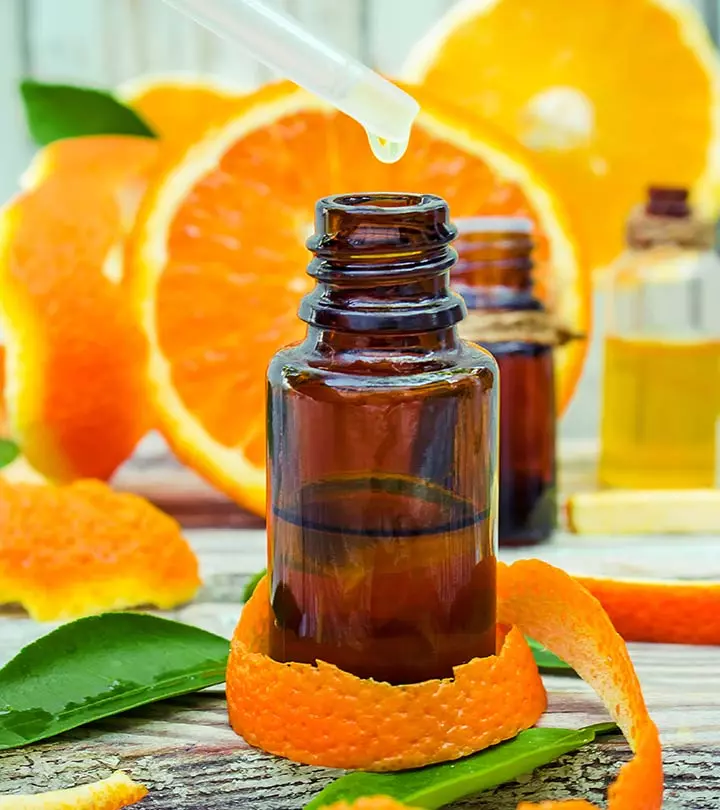
Image: Shutterstock
Orange essential oil is primarily extracted from orange peel, but it can also be taken from the plant’s leaves and twigs (also called orange blossom and neroli). It has a sweet, fruity aroma that gives you a sense of freshness and peace. So, how does this oil benefit your health?
This orange byproduct reduces lung infection risk, enhances exercise performance, protects dental health, and has anti-cancer, anti-anxiety, and insecticidal properties. But, what does science say? In this article, we look into the findings of several studies on orange essential oil’s benefits, its potential side effects, and how to make this oil at home. Keep scrolling to know more!
In This Article
What Is Orange Essential Oil?
The oil extracted from the peel and wastes (sometimes leaves) of orange (Citrus sinensis) is known as orange essential oil (sweet orange essential oil, to be precise).
Orange waste is a valuable source of limonene, flavonoids, carotenoids, dietary fibers, soluble sugars, cellulose, hemicellulose, pectin, polyphenols, and ascorbic acid; although the flavonoids, fibers, etc. are not found in the essential oil. The oil extracted from this waste contains many valuable terpenes and, thus, is the most vital by-product of Citrus processing.
Broadly speaking, most Citrus essential oils (including sweet orange oil) are used as natural food additives and preservatives in several foods and beverage products because they have been classified as ‘Generally Recognized As Safe’ (GRAS).
 Trivia
TriviaAdditionally, this oil has potent antibacterial, antifungal, insecticidal, anthelmintic, antioxidant, and anxiolytic properties (1).
To know what orange essential oil does to your body, move on to the next section.
7 Benefits And Uses of Sweet Orange Essential Oil
1. Anti-staphylococcal Agent
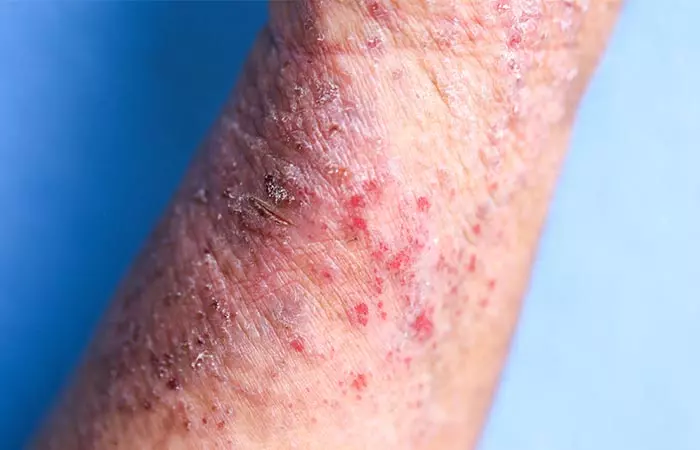
Staphylococcus aureus is the human body’s worst enemy as it causes acute to lethal disorders.
Applying citrus oils like sweet orange oil or Valencia orange oil to affected sites can kill multidrug-resistant microbial strains like Staphylococcus. The vapors of this oil are rich in limonene, and also contain linalool, myrcene, and alpha-pinene that have potent antibiotic and bactericidal properties.
Orange oil, in combination with eucalyptus oil, can accelerate wound healing. It contains carvacrol, thymol, and cinnamaldehyde (2). Hence, orange essential oil can cure several skin disorders like eczema, acne, and burns.
2. Anxiolytic And Relaxant
Melatonin secretion declines with aging, causing biological rhythms to advance. Aromatherapy with oils like sweet orange, lavender, and cypress can promote the secretion of serotonin and endorphins.
Endorphins create a sedative effect, while serotonin binds to enzymes during the night to produce melatonin, thereby promoting sleep. Boosting endorphin and serotonin secretion using aromatherapy can help the elderly sleep at a regular time and reduce insomnia-related anxiety and agitation (3).
Inhaling the vapors of sweet orange oil can also help pregnant women overcome anxiety during labor (4).
3. Lung Function And Athletic Performance Booster
In a study conducted in 2016, it was found that inhaling sweet orange and peppermint oil vapors increased the lung capacity (from 40% to 70%) and athletic performance in the participants (5).
Aromatherapy with these oils can also relieve pricking pain sensation, suppress autonomic responses, and reduce muscle pain and fatigue. However, there are not many previous studies about Citrus sinensis oil inhalations on the lung function and on the athletic performance (5).
4. Dental Health Protector
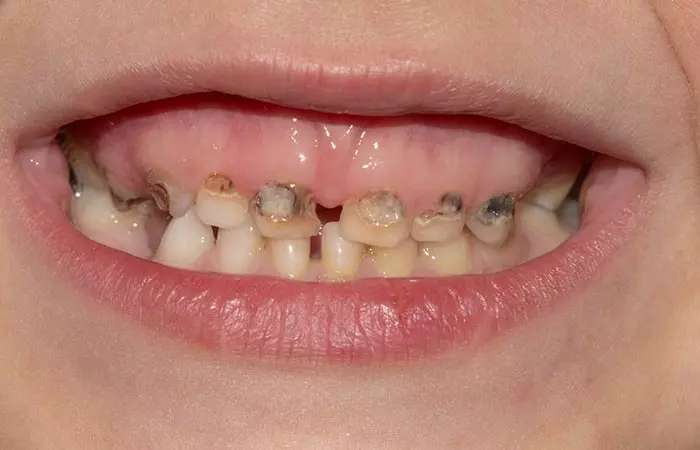
Essential oils in orange peel can combat dental caries due to its antimicrobial property. The ethanolic extract of orange peel contains alkaloids, saponins, tannins, phenolic derivatives, essential oils and flavonoids (6).
In the future, with sufficient research, orange peel extracts can be incorporated in dental products such as mouth rinses and toothpastes.
Children undergoing dental procedures were more relaxed when exposed to orange essential oil aromatherapy. This oil showed anxiolytic properties- reduced the pulse rate and anxiety-boosting salivary neurotransmitters in them (7).
5. Antioxidant And Anticancer Agent
Like other citrus oils, orange essential oil also has potent antioxidant properties, thanks to the presence of volatile components like limonene, linalool, myrcene, sabinene, pinene, and geranial.
Various studies on this essential oil have also exhibited its anticancer potential.
A sweet orange oil treatment for 30 weeks eventually reduced the cancerous lesions in the liver of mice subjects. It also brought down the hepatic tumor incidence to less than 50% in mice (8).
Additionally, there is evidence demonstrating the apoptotic activity of sweet orange oil in human cancer cells. It also prevented the metastasis and growth of human leukemia and colon cancer cells(8).
6. Anthelmintic And Insecticidal Agent
Sweet orange oil has an intense larvicidal effect against the malaria vector (Anopheles labranchiae) and the vector of yellow and dengue fevers (Aedes aegypti) (1).
This oil is a potent fumigant against houseflies, cockroaches, mosquitoes, and subterranean termites.
It is also an effective anthelmintic agent against gastrointestinal nematodes (1).
7. May Aid Weight Loss
Sweet orange essential oil (SOEO) emerges as a potential weight loss aid, as suggested by research conducted on obese SD rats made to gain weight through a high-fat diet (9). The study fed these rats with SOEO microcapsules for 15 days, resulting in a remarkable 41.4% reduction in body weight gain. Notably, the oil microcapsules not only decreased total cholesterol levels but also mitigated adverse alterations in the liver and adipose tissue. The study further unveiled potential mechanisms underlying this weight loss, indicating that these microcapsules may function by modulating gene expressions related to lipid metabolism. Such findings underscore the potential of orange essential oil as a natural dietary supplement for weight management. However, since this was an animal study, more human research is needed to support the use of SOEO as a weight loss aid.
Orange essential oil can, therefore, cure diarrhea, food poisoning, and related conditions.
Orange essential oil has quite a unique set of benefits and applications, doesn’t it?
 Did You Know?
Did You Know?Orange essential oil, also known as orange blossom or neroli essential oil benefits our body in numerous ways. So, what components of this essential oil are responsible for such benefits? Scroll down to find out!
What Is The Phytochemical Composition Of Orange Essential Oil?
Orange essential oil is full of components that are of pharmaceutical importance. The source of all these medicinal compounds is the orange peel. Shocking, isn’t it?
The orange peel has abundant d-limonene and other important terpenes like linalool, pinene, myrcene, sabinene, and neral (1).
It is because of this rich phytochemical profile that orange essential oil can exhibit those six crucial properties you read about in the previous section.
But is such a useful and powerful ingredient easily available? Now comes the more practical part.
Orange essential oil is not only accessible but is also very easy to make. Want to try? Glove up and read on!
DIY: How To Make Orange Essential Oil At Home
This procedure will give you crude and absolute essential oil. True essential oil can be obtained only by steam distillation or cold-pressing. Both of these are time-taking, laborious, and certainly not a DIY procedure. But you can certainly try out a small batch.
You will need orange waste for this job. Yes, not the fruit, but the peels! Here’s the recipe.
What You Need
- Oranges
- Zester or vegetable peeler
- Grain alcohol or vodka
- Mason jar
- Big bowl
- Cheesecloth
- Knife
- Screw cap bottle
- Paper towels
Let’s Make It!
- Remove the orange peels and place them in a bowl. You can either remove the peels from the oranges with a knife or grind the peel with a zester or a vegetable peeler.
Note: For best results, avoid cutting off any of the pith. This part of the orange has very little limonene and will make your mixture bitter.
- Place the peels on a dry paper towel and leave them in direct sunlight until they are completely dry. Depending on the humidity in your area, this can take a couple of days.
Note: Avoid over-drying the peels/zest. This can cause a loss of limonene.To accelerate the process, try chopping the orange peels into small 1-inch pieces.
- After the peels have dried completely, transfer them to a food processor.
- Grind them until they reach a coarse consistency.
Note: If you used a zester, skip steps 3 and 4.
- Fill a bowl with warm tap water. It should be warm but not overly hot (around 90°F or 32°C).
- Place the bottle of grain alcohol in the warm water and let it sit for about 20 minutes. You can also use vodka for this process.
Note: You can use cold alcohol. However, warm alcohol will help you get more oil.
- Place the zested or ground orange peel in a mason jar.
- Pour in enough warm alcohol to cover the powder completely.
- Once you have covered the ground peel/zest, secure the lid and shake the jar vigorously for several minutes.
- Let the mixture sit for 2-3 days. During that time, shake the mixture two or three times a day.
- You can let the mixture sit a little longer than a few days. The more you shake it and the longer you let it sit, the more oil you will get from your mixture.
- Cover the bowl with a cheesecloth.
- Strain the mixture into the bowl through the cloth. You can also use a coffee filter for this step.
- Squeeze out all of the liquid into the bowl.
- Cover the bowl with a cloth or paper towel and let it sit for a few days.
- In this step, we are allowing the remaining alcohol in the mixture to evaporate. Once the alcohol has evaporated, you will be left with orange oil.
Note: Do not let the towel fall into the mixture. It will absorb the oil. So, clip the ends or make suitable arrangements.
- Once the alcohol has completely evaporated, put the remnant oil in a container with a lid.
- Store it in a cool, dry, and dark place.
If you follow the recipe carefully, you will make a batch of orange essential oil successfully.
Before you use this oil, do a patch test on your skin to know how your body reacts to this oil.
You can then either apply it topically on affected sites for relief or add it to your oil diffuser for a lingering and relaxing sweet smell.
Orange essential oil goes well with thyme oil, sweet basil oil, eucalyptus oil, and various earthy and pungent fragrances. This oil tones down the pungency of other oils and gives them a soothing undertone.
You can also use sweet orange oil as a massage oil. For this application, you can dilute the orange oil in a carrier oil (coconut, almond, jojoba, castor, or argan oil) to 5% potency before using it.
Caution!
Sweet orange oil is non-photosensitizing while bitter orange oil is photosensitizing. If you don’t store it right, it might get oxidized, losing its potency.
Orange essential oil is extracted from the rinds of oranges. It exhibits anti-cancer, insecticidal, anti-anxiety, and anti-bacterial properties. The benefits of orange essential oil are many. It helps pregnant women overcome anxiety during labor, improves lung function, increases athletic performance, combats dental caries, and acts against cancer cells. You can prepare this essential oil easily at home. In addition, store it properly to preserve its potency.
Frequently Asked Questions
Can you mix lemon and orange essential oils?
Yes. Both are citrus scents and, when blended together, may help boost mood and ease anxiety.
Does orange essential oil whiten teeth?
Yes. Orange contains a bromelain enzyme that helps remove stains and reduce plaque build-up (9).
Is orange oil good for hair?
Yes. As per anecdotal evidence, orange oil may help nourish and moisturize hair and leave silky smooth hair behind.
Key Takeaways
- Orange essential oil is extracted from the orange flowers, leaves, bark, and peel. It has antimicrobial, anti-anxiety, and antioxidant properties.
- This oil helps promote wound healing and can be used to improve dental health and enhance lung function and athletic performance.
- Orange essential oil also works excellently as an insect repellant and can be used to repel cockroaches and mosquitoes.
- You can easily prepare it at home using orange peels and simple extraction methods, which provides a cost-effective solution for personal use.
References
Articles on StyleCraze are backed by verified information from peer-reviewed and academic research papers, reputed organizations, research institutions, and medical associations to ensure accuracy and relevance. Read our editorial policy to learn more.
- “Biological Activities and Safety of…” International Journal of Molecular Sciences, US National Library of Medicine
- “Application of orange essential oil as an…” BMC Complementary & Alternative Medicine, US National Library of Medicine
- “Effects of Inhalation Aromatherapy on Symptoms…” Evidence-based Complementary and Alternative Medicine, US National Library of Medicine
- “The effect of aromatherapy by essential…” Iranian Journal of Nursing and Midwifery Research, US National Library of Medicine
- “The effect of inhalation of Citrus sinensis…” Journal of the International Society of Sports Nutrition, US National Library of Medicine
- “Antimicrobial effects of Citrus sinensis…” Journal of Clinical and Experimental Dentistry, US National Library of Medicine
- “Possible Use of Essential Oils in Dentistry” Journal of International Oral Health, US National Library of Medicine
- “Biological Activities and Safety of Citrus spp. Essential Oils” International Journal of Molecular Sciences, US National Library of Medicine
- “Comparison between the effect of commercially available chemical teeth whitening paste and teeth whitening paste containing ingredients of herbal origin on human enamel” Ayu
Watch this tutorial video that demonstrates an easy and quick recipe for preparing homemade orange essential oil. You will also learn about its versatile uses and proper storage.
Read full bio of Dr. Scott Johnson
Read full bio of Ravi Teja Tadimalla
Read full bio of Himanshi Mahajan





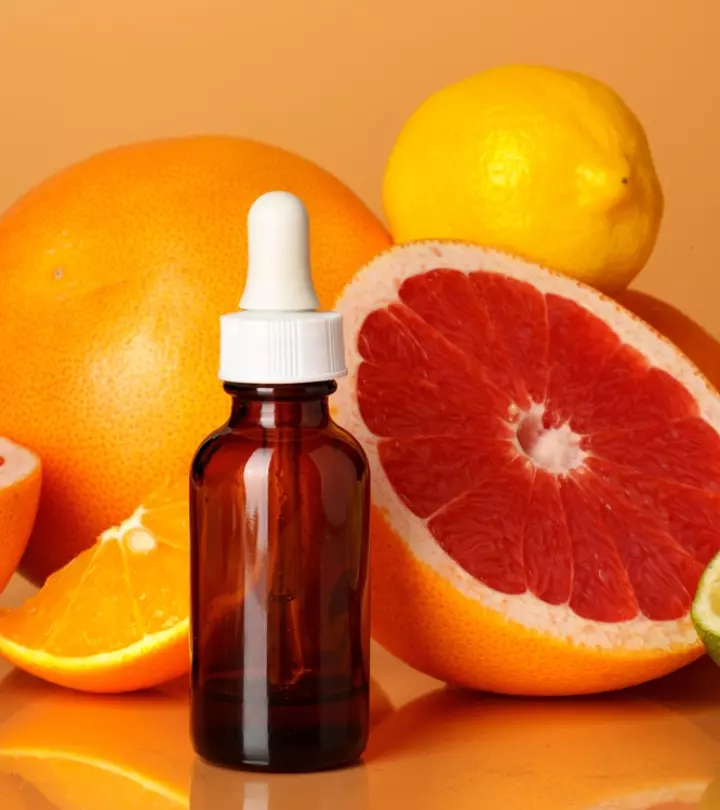
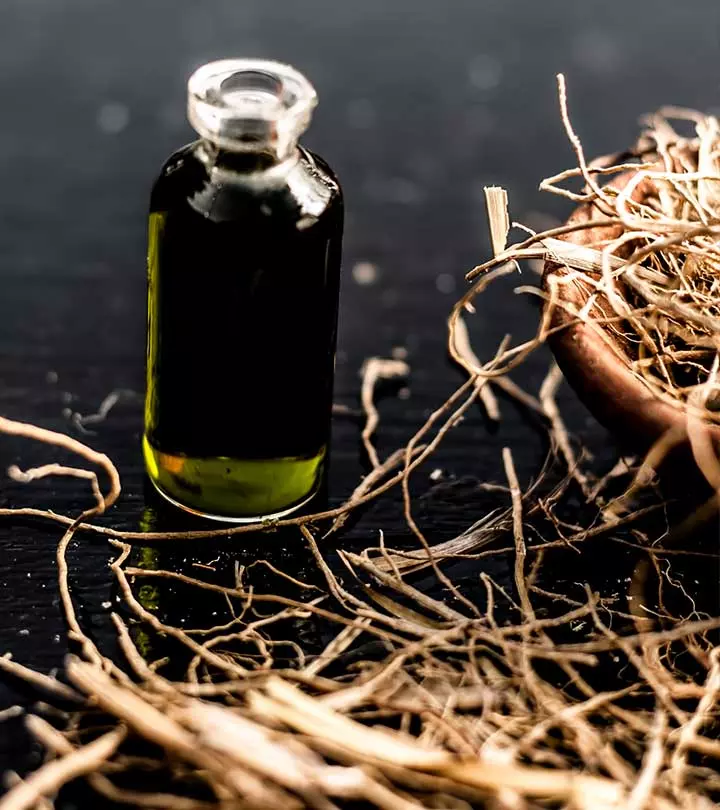
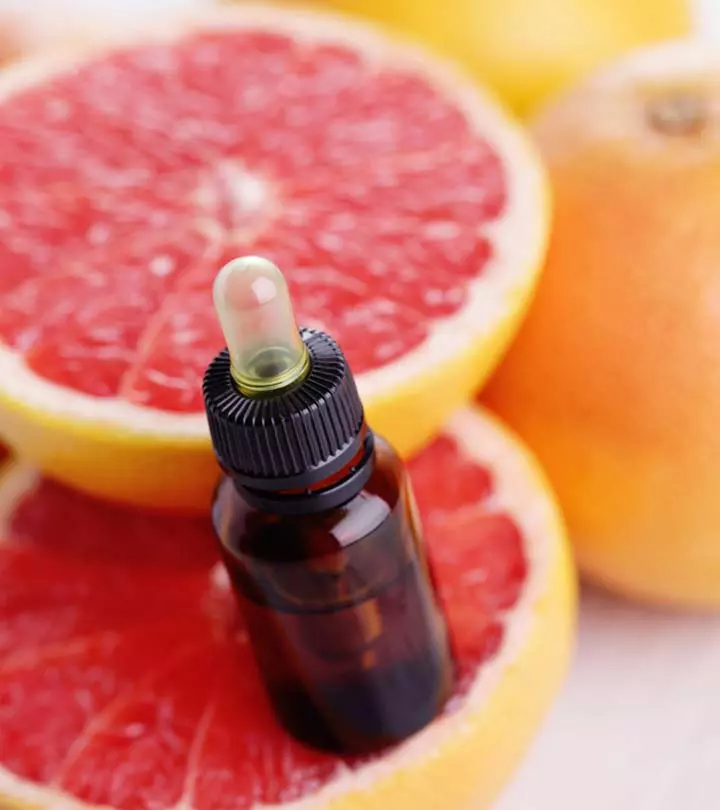
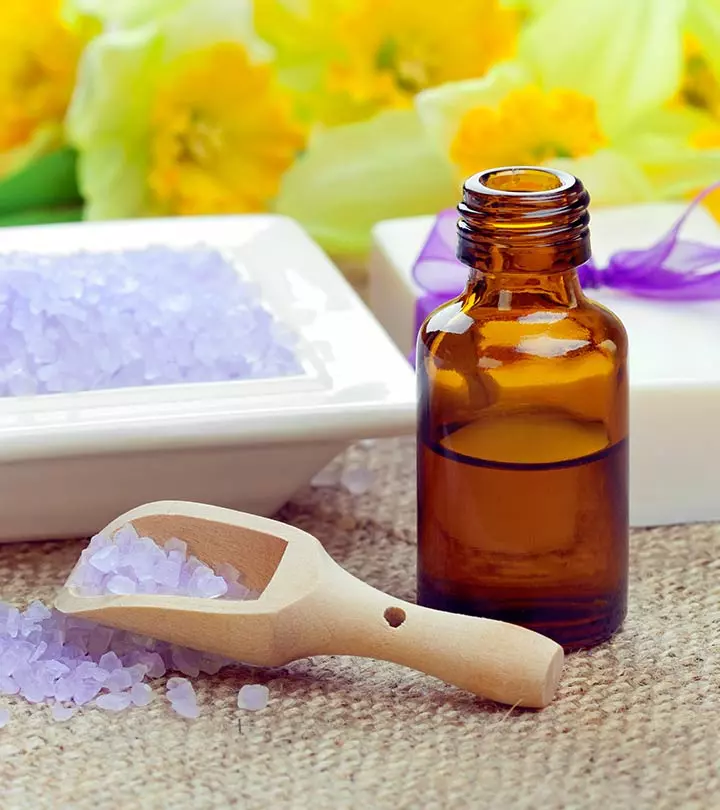
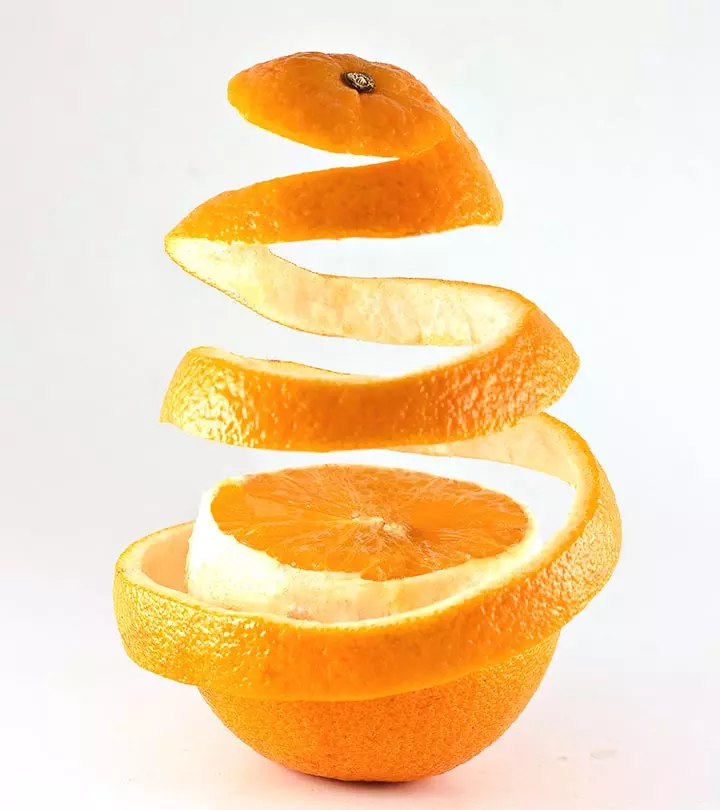
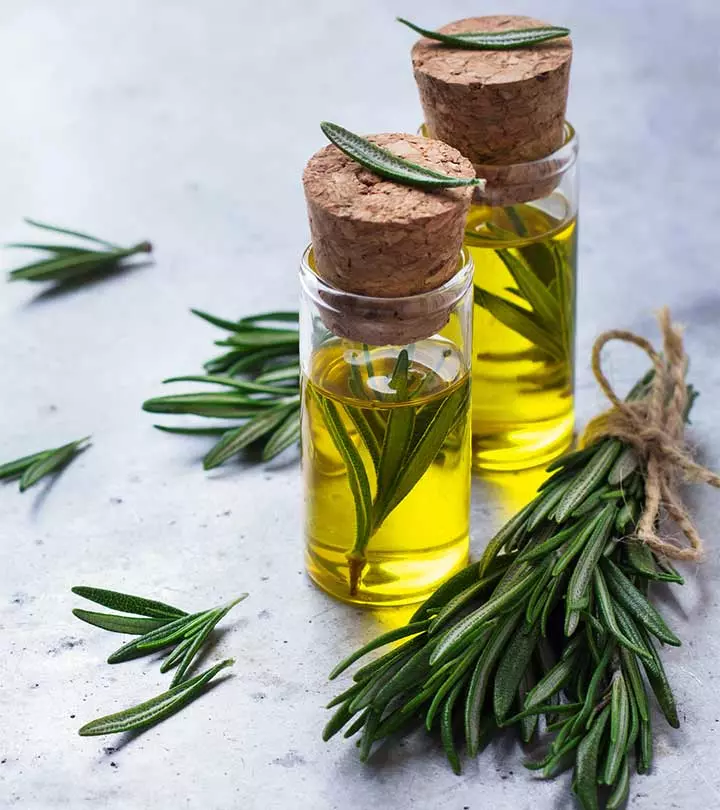
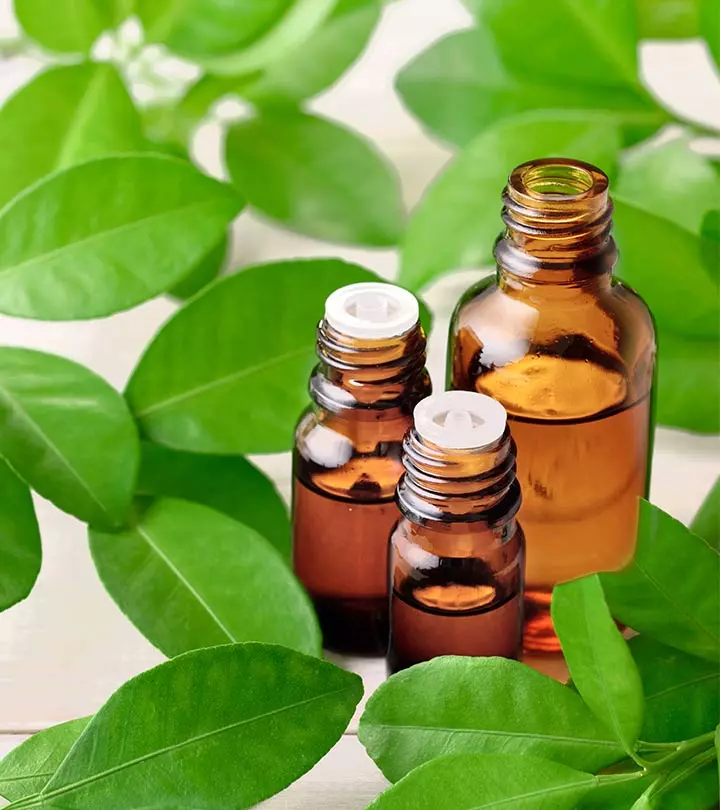
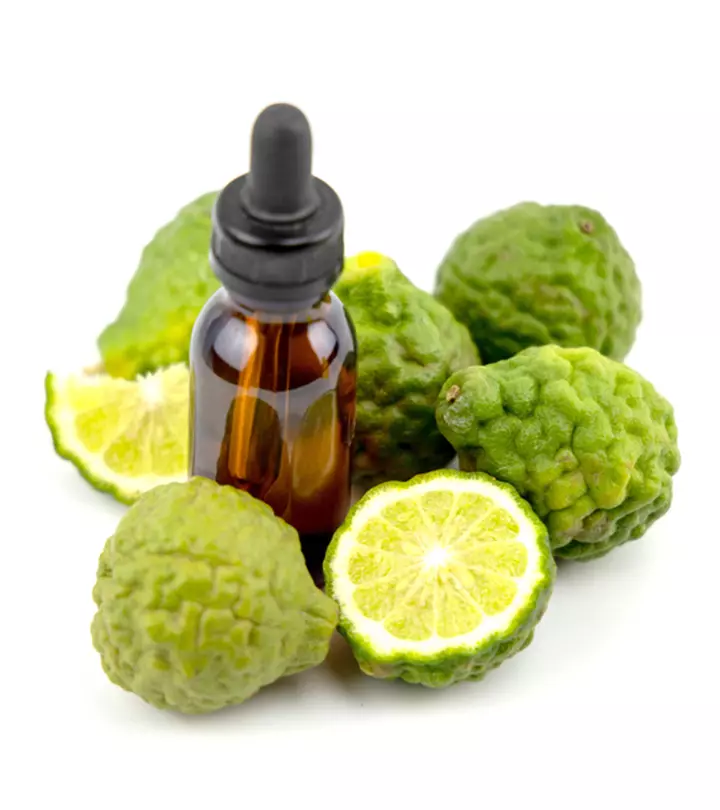
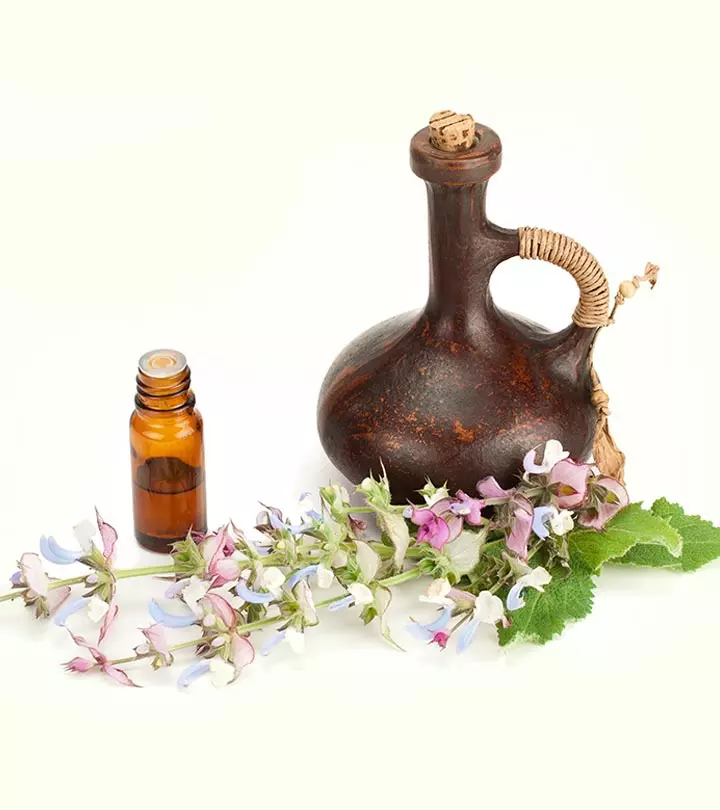
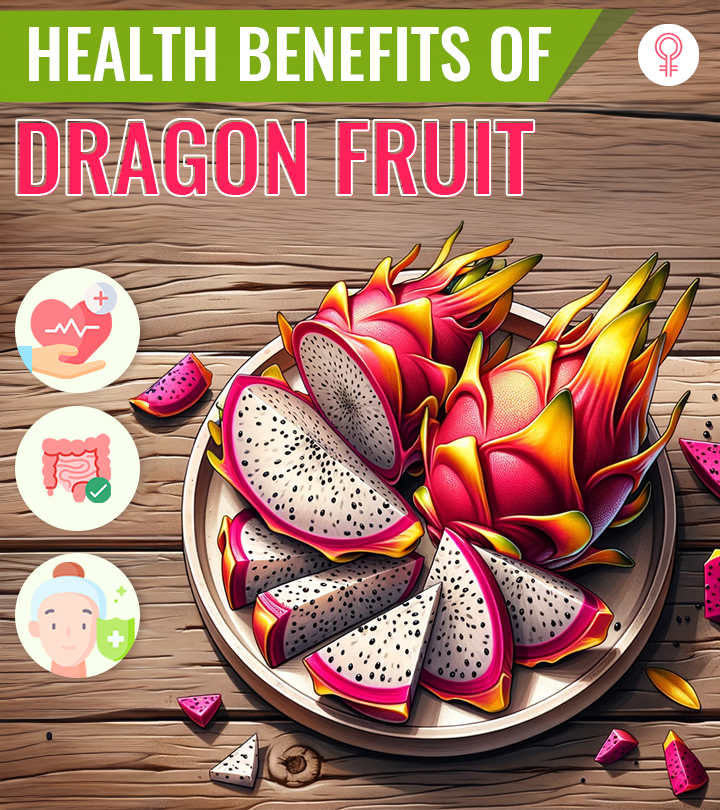
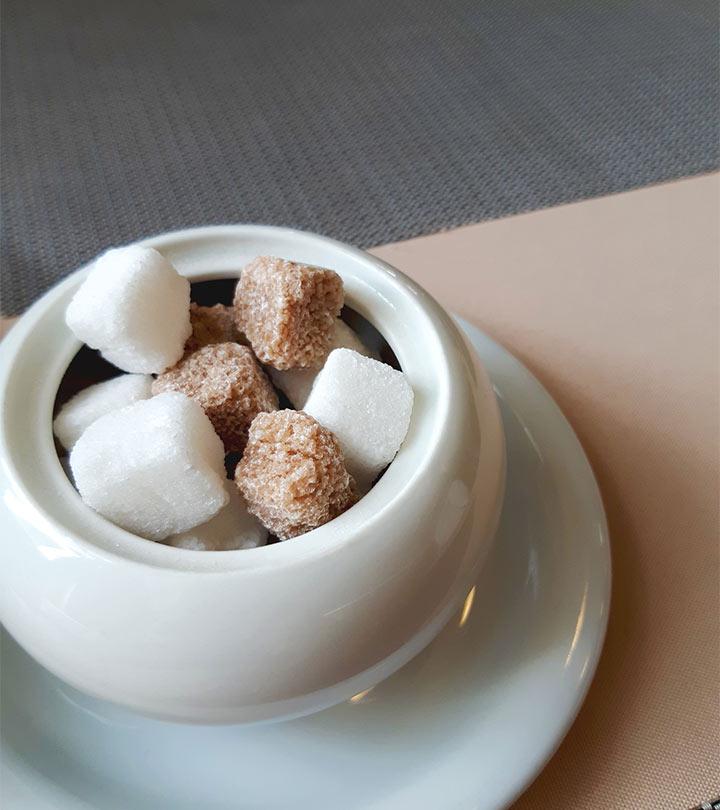
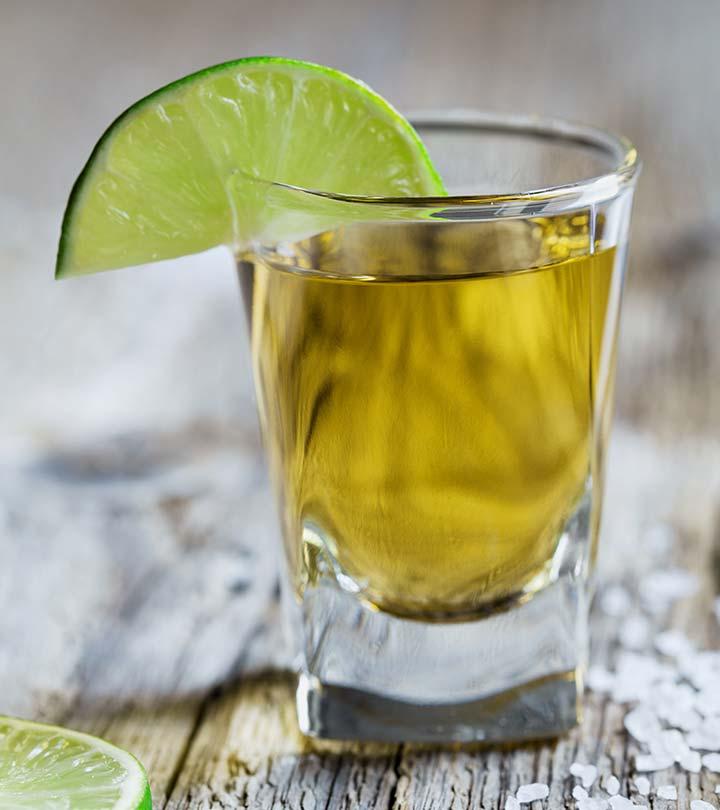
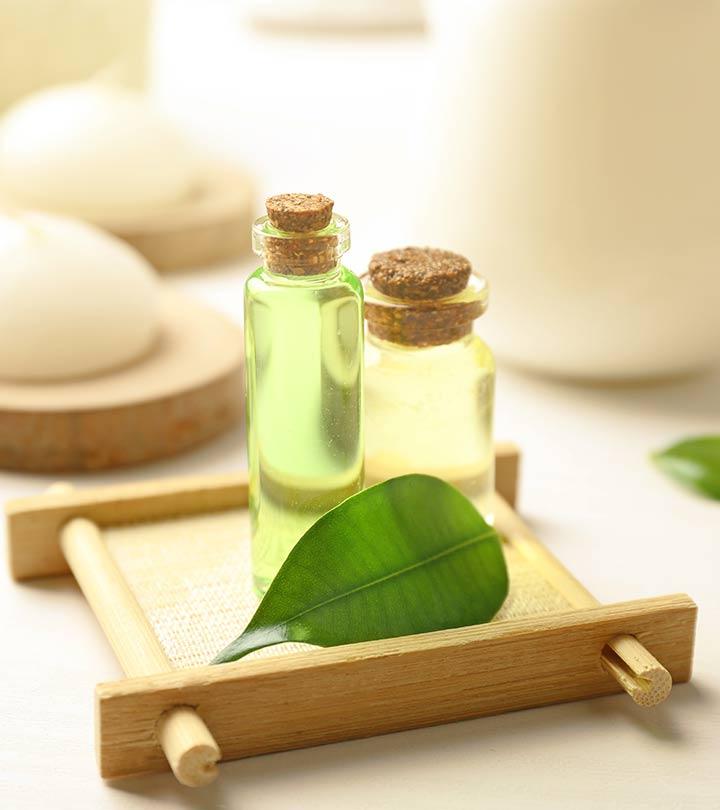

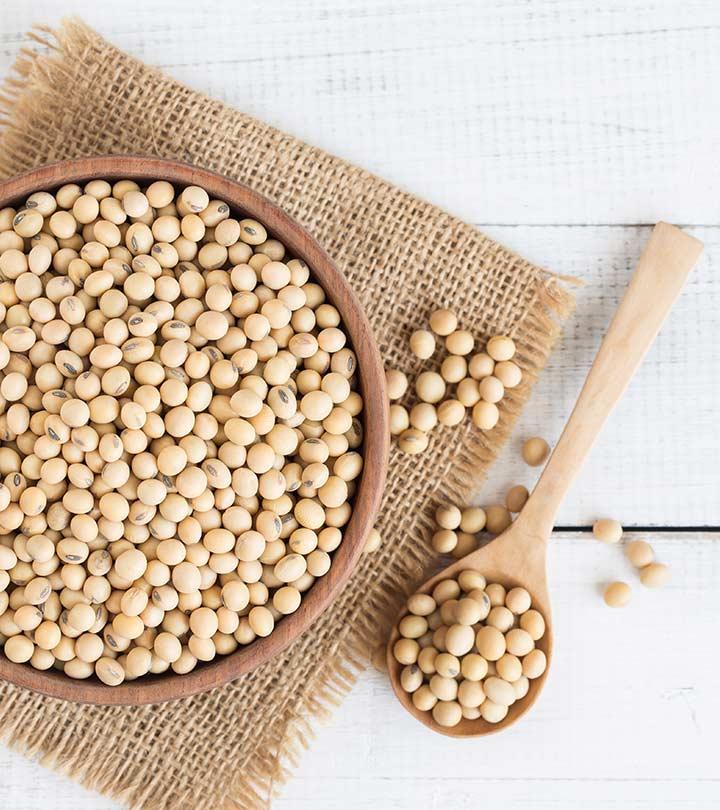
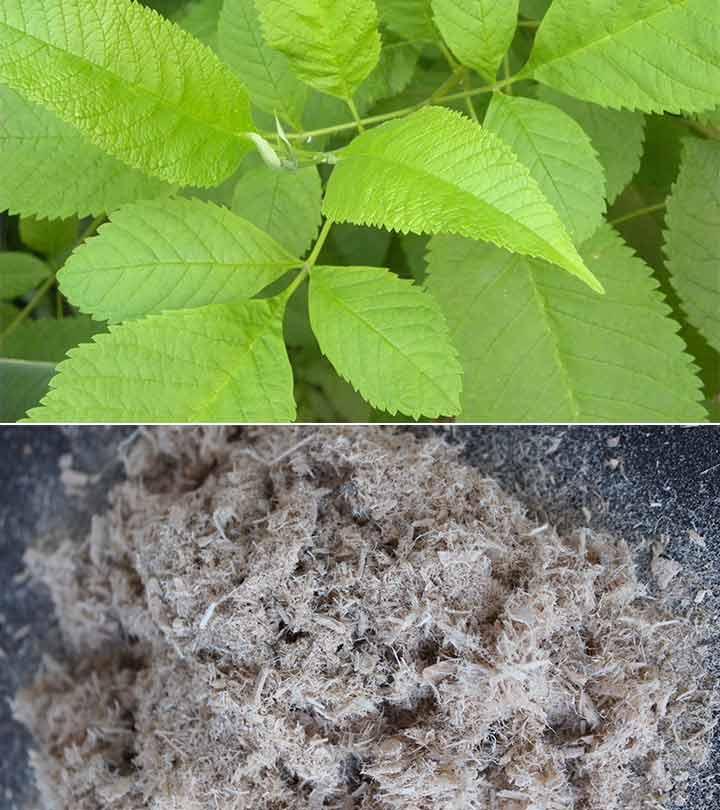
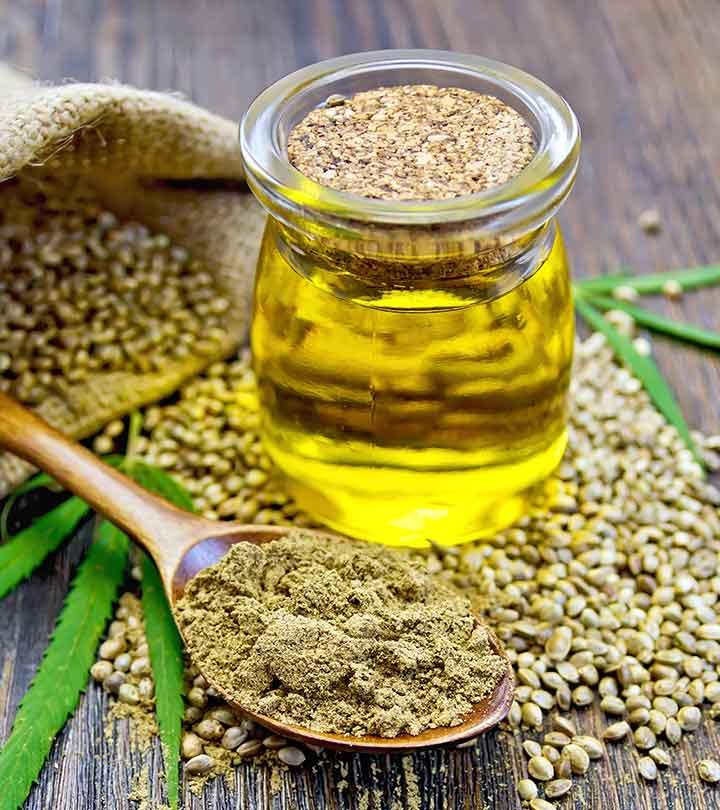
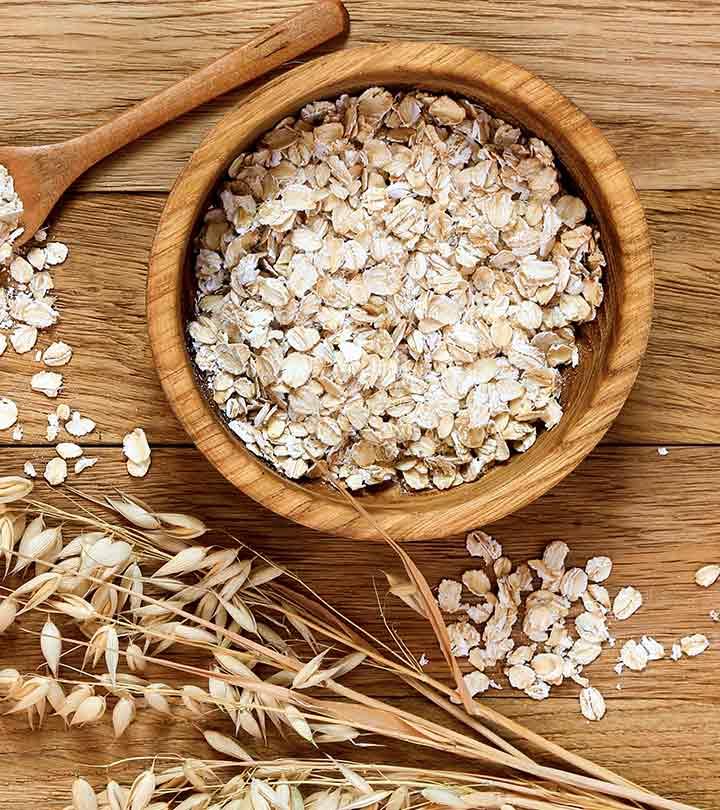
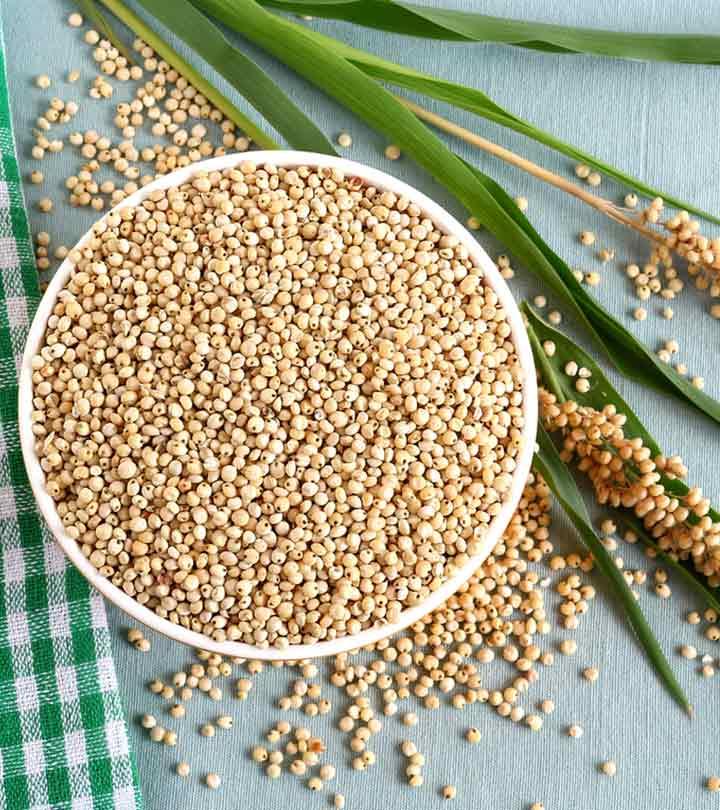
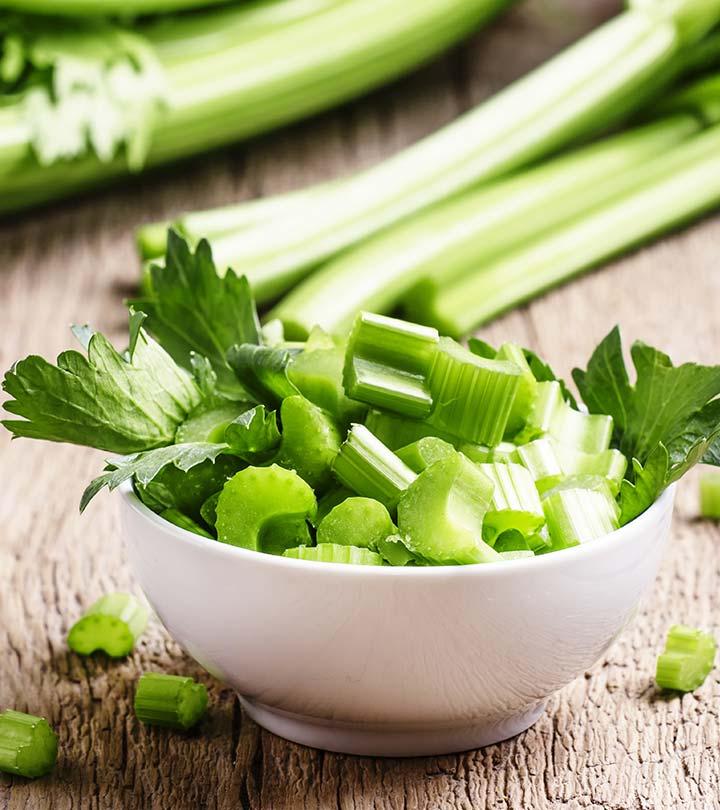
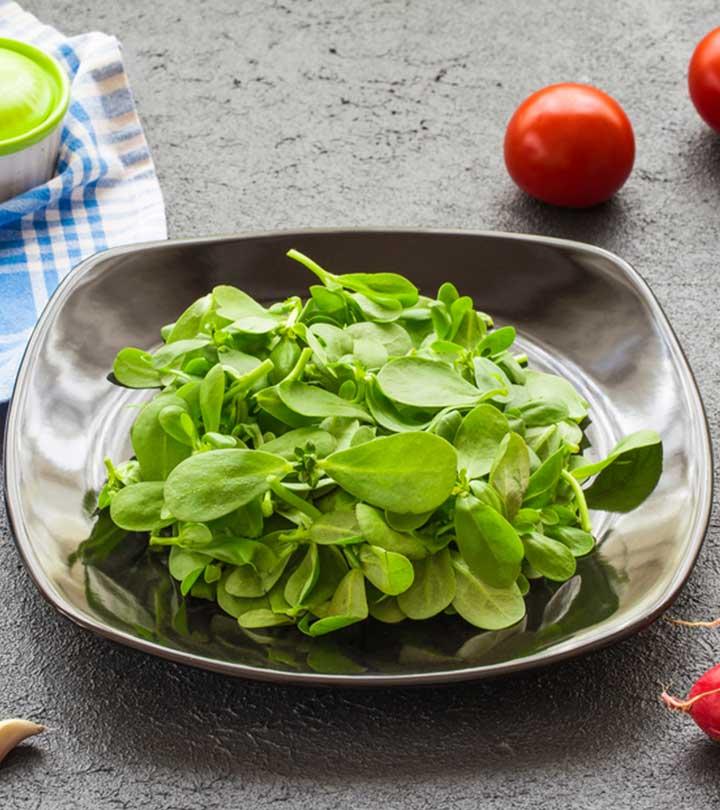
Community Experiences
Join the conversation and become a part of our empowering community! Share your stories, experiences, and insights to connect with other beauty, lifestyle, and health enthusiasts.